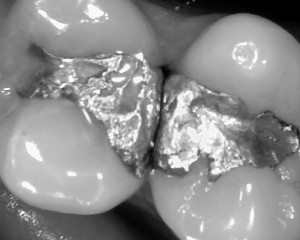 There’s no doubt about it: it can be a challenge finding someone you trust that cares about the dental health of your children and the rest of your family. And to make matter worse, many people who think they’re doing the right thing by choosing a holistic dentist find out that the dentist they choose isn’t so holistic after all.
There’s no doubt about it: it can be a challenge finding someone you trust that cares about the dental health of your children and the rest of your family. And to make matter worse, many people who think they’re doing the right thing by choosing a holistic dentist find out that the dentist they choose isn’t so holistic after all.
It seems that the term “holistic dentistry” is en vogue right now, and lots of dentists are using it who shouldn’t be.
Holistic or biological dentists are those that understand that your teeth are an integral part of your body as a whole and interact in many ways with your overall health. That means that bad teeth can actually bring down the overall health of your body. The goal, then, of any holistic dentist should be to help a patient achieve a point of overall happiness about his or her body.
To see if your ideas line up with those of a holistic dentist you may be considering, ask these questions:
What’s covered in the first exam? Some pediatric dentists spend only 3 to 7 minutes with their patients, and that’s not long enough to spot all the potential issues. Expect a good holistic dentist to look at the health of all teeth and check for jaw deviation issues, developmental issues, sleep quality, posture, airway and breathing issues and much more. There should also be a discussion about what every family member being examined eats and how this impacts overall health.
What kinds of materials are used for restorations? A holistic dentist should never use dental amalgam because it contains about 50 percent mercury, a known toxin that should never be placed in the body. The dentist also should not recommend mouth guards or other devices that contain BPA. This toxic chemical could also be in other kinds of dental appliances and sealants for teeth prone to cavities.
What’s the policy on x-rays? Traditional x-rays expose patients to a lot of radiation, and this is particularly harmful to children. Some holistic dentists may avoid x-rays altogether, but the best idea is to use lower-radiation digital x-rays, take them less frequently and only take the portion of the mouth that’s necessary for accurate treatment. Certainly, x-rays should not necessarily be done at every visit.
Are root canals performed? Root canals may sometimes be acceptable, but they involve a lot of chemicals that are used to sterilize the tooth and kill its nerve. And these chemicals can leak into the body through the tooth root and cause a variety of health issues. In some cases, completely removing an infected tooth can be safer and lead to better long-term results. Bridges and other devices can fill the gap.
It may seem a lot ask, but what’s more important than the health of your children and your family? Asking the right questions can keep you from allowing the wrong treatment to be performed and can prevent many kinds of hassles and illnesses in the future.
For a consultation with Dr. Vinograd, visit http://biocompatibledentist.org/